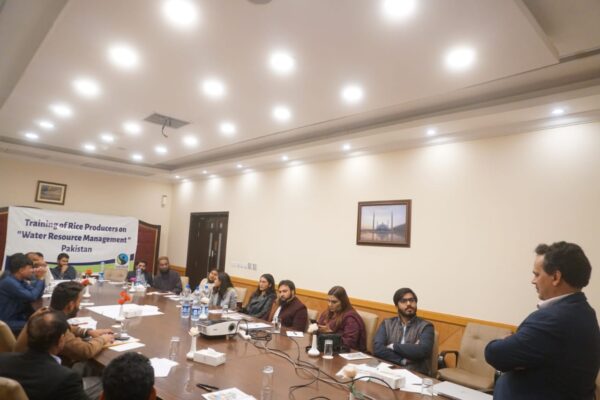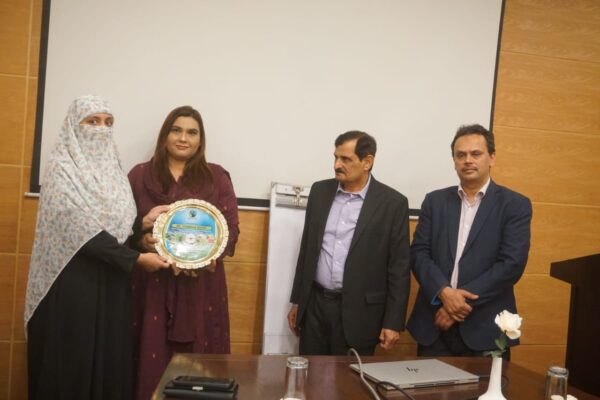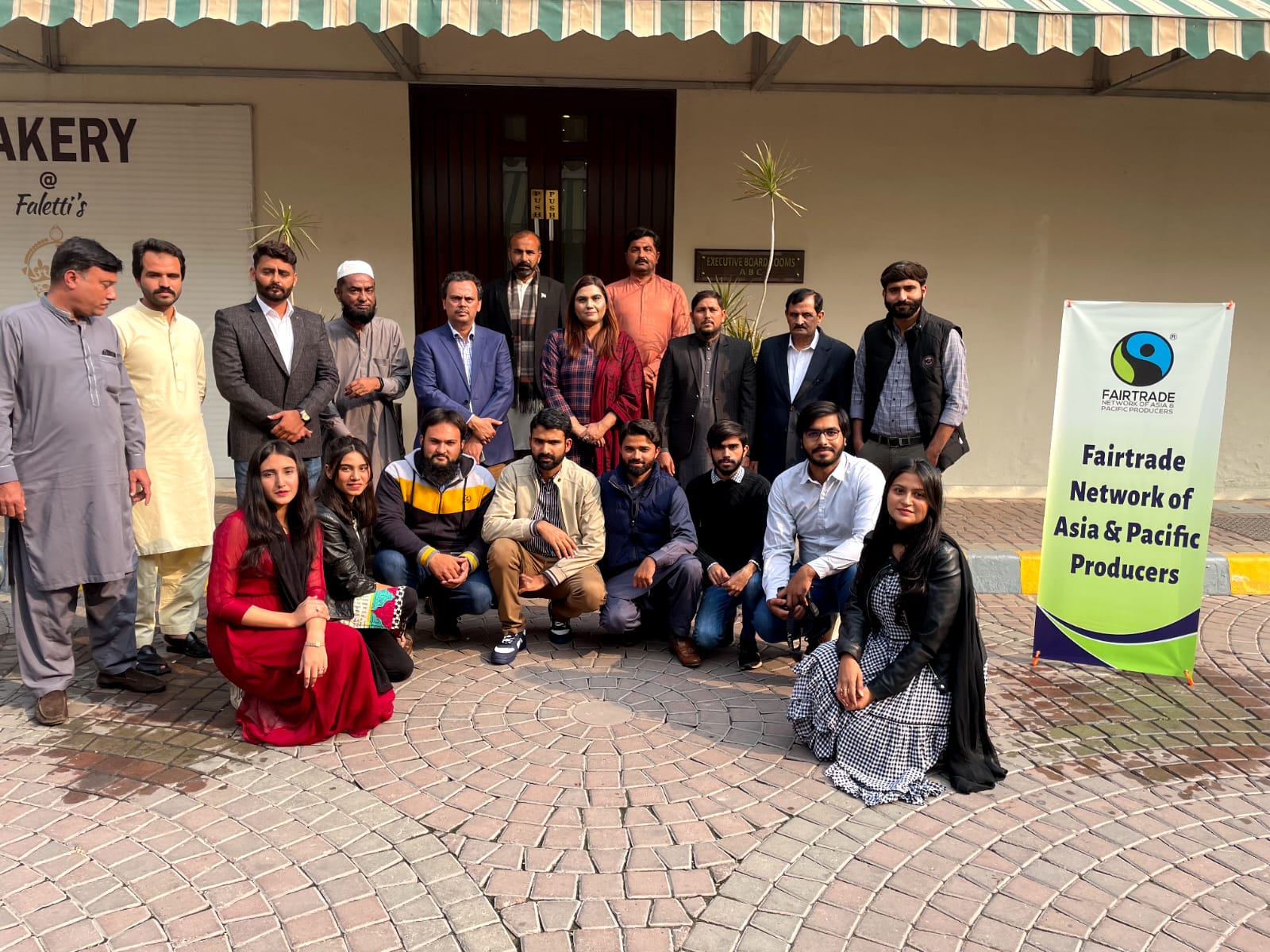
More than half of the world’s population relies primarily on rice as a source of food, employment, and a means of subsistence. While it is the third-most significant crop in Pakistan, it currently deals with a number of difficulties affecting its yield and sustainability. As it is a water-intensive crop, utilizing almost 30% of the country’s freshwater supply, it is typically grown in heavily flooded and puddled fields.
With the impacts of Climate change, the agriculture of Pakistan is severely getting affected by the continuous decline of the the water resources. To ensure that rice production doesn’t get affected and the water resources remain sustainable, it is the need of the hour to adopt irrigation systems with water-efficient techniques, organic practices, increasing soil health, protecting farmland, and environmentally friendly agricultural practices.
Despite significant investment in irrigation and agriculture sectors by the Government, the productivity of water is still reported to be very low. 40% of irrigation water requirements in the country are met from groundwater. Climate change (also exacerbated by human practices) poses additional stress on water resources and associated transformation in resources required for food production in Pakistan.
Considering the future implications of water shortages, Fairtrade NAPP convened a 2 days training on “Water Resource Management for Rice Producers” on December 2-3, 2022, in Lahore, Pakistan. The expertise of a short-term consultant was sought to provide the producers with technical support for improving water resource management and other adaptation techniques to improve the individual farmer’s return on investments.
The event brought together 3 Small Scale Producers Organizations (Rice Producers) facing various pre and post-harvesting issues in Rice production.
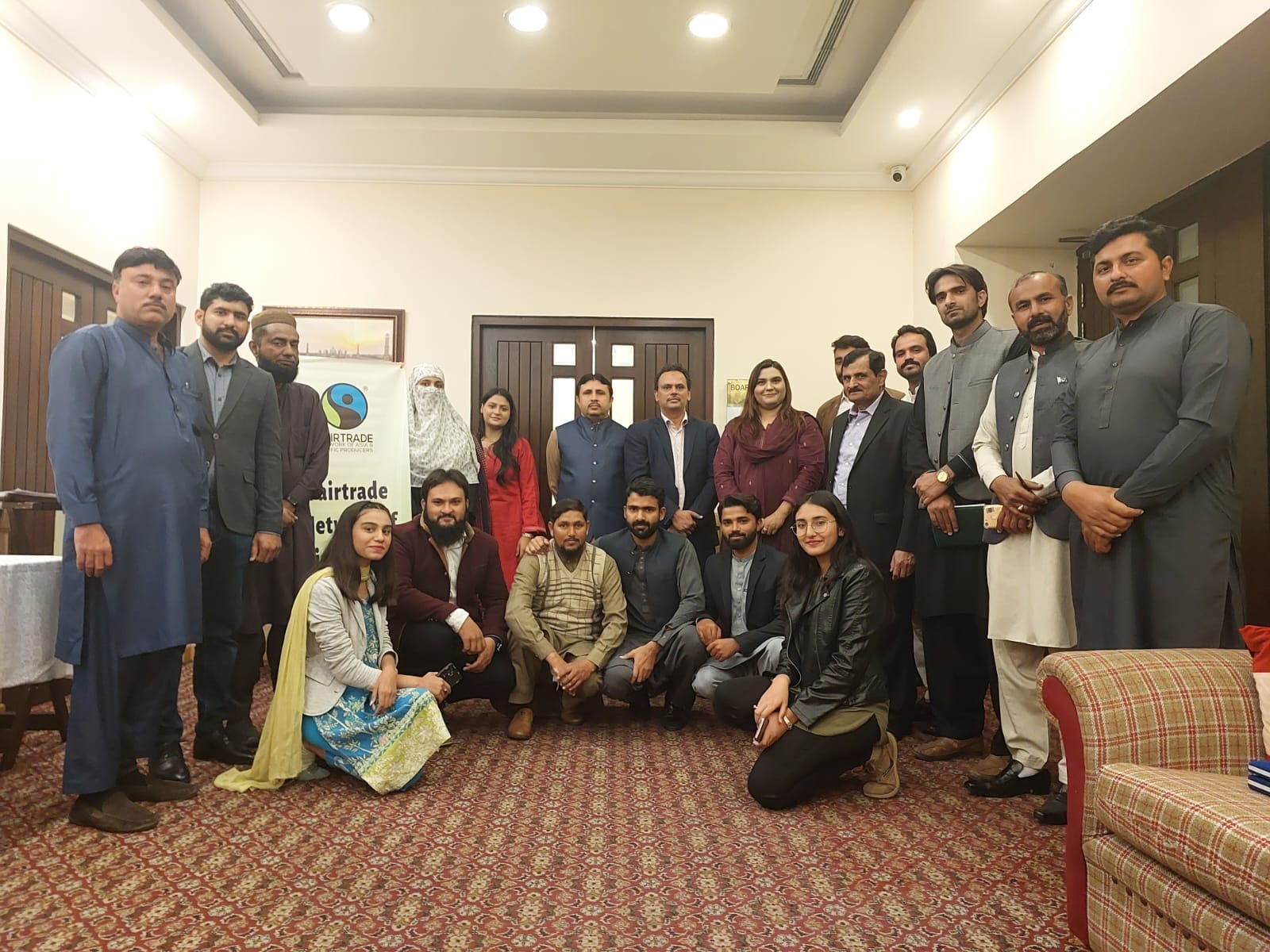
Through the platform, discussions were led among major rice producers, millers, and exporters to develop collaborative multi-stakeholder action plans for ensuring and strengthening sustainable water resource management.
The 02-day training consisted of 5 modules:
- Impact of Climate Change & Water Resource Management
- Policies, Strategies & Legislation on Water Resources Management
- Sustainable Water Resource Management in Rice
- Adaptation for Sustainability Criteria in Rice
- Water Efficient Techniques in Rice Production
The sessions were also attended by Govt. officials from Punjab Agriculture Department, Tahir Mehmood (Deputy Director Agriculture – on Farm Water Management) and Shumaila Sharif (Deputy Director Climate Change – On Farm Water Management who addressed the producers about the problems regarding the water crisis, and ensured their support at the policy level.
The training helped the producers to address challenges on how to manage water resources in a sustainable way for rice production that exhausts a lot of groundwater. They were briefed on 03 basic principles of when, how, and how much to irrigate by adopting the latest water-efficient technologies like Alternate Wetting and Drying, Laser land levelling, and Direct Seeded Rice. There were discussions on the implementation of new strategies, policies, and technologies based on the 03 sustainability criteria of People, Planet and Profit.
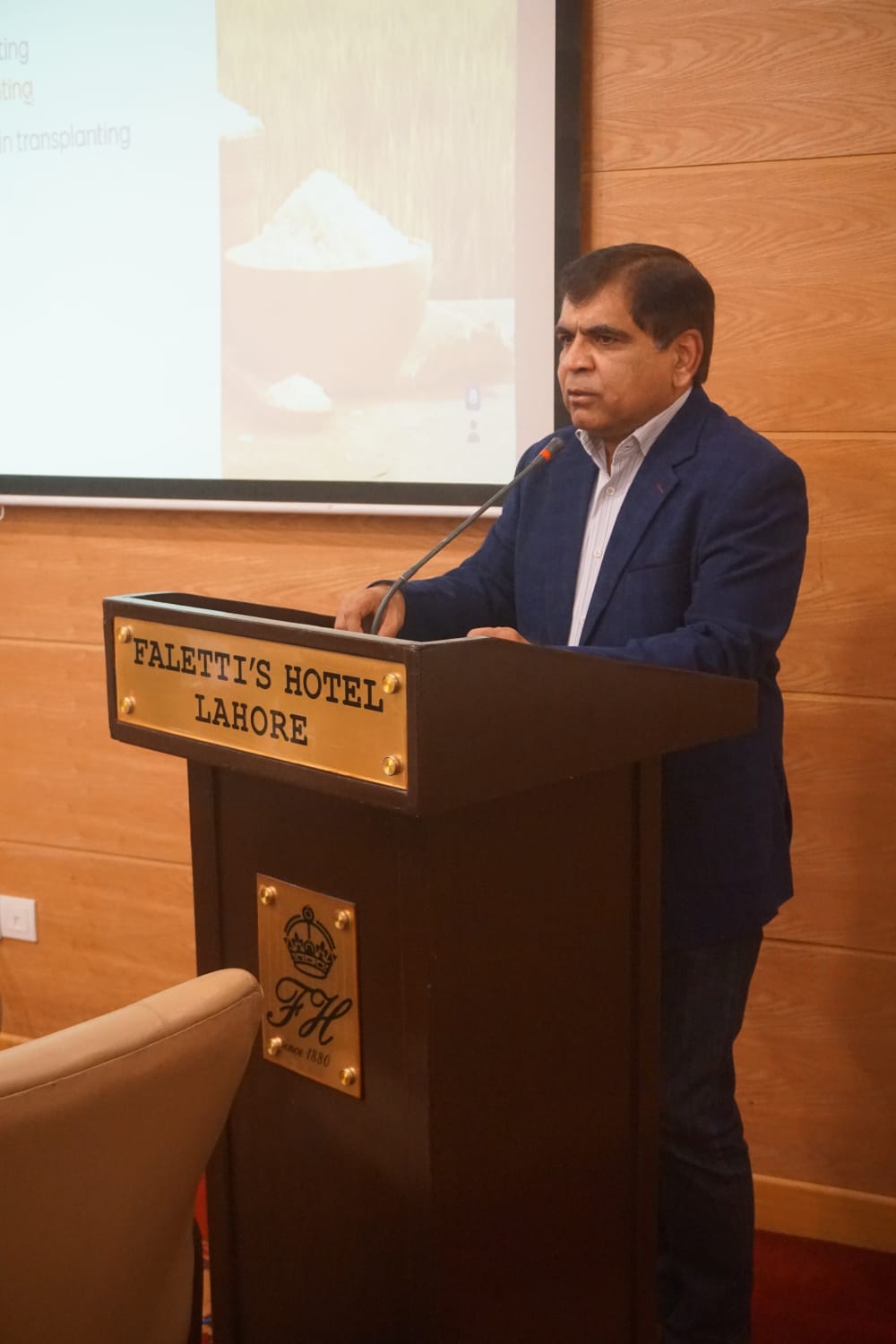
Malik Muhammad Jamil, NAPP Board member in Pakistan in his closing remarks highlighted the global vision of NAPP and how the Fairtrade Global movement shares a vision of a world in which trade structures and practices are centered on justice and sustainable development so that everyone can maintain a respectable and dignified livelihood through their work and realize their full potential as human beings.


